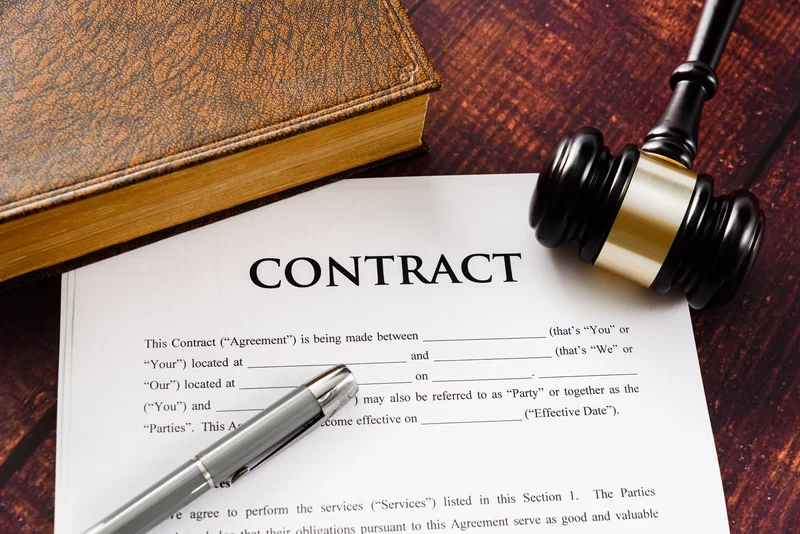
- Understanding-Business-Contract-Disputes
- Common-Causes-of-Contract-Disputes
- Step-by-Step-Guide-to-Handle-Disputes
- Real-Life-Examples-and-Lessons
- Professional-Support-and-When-to-Seek-It
Understanding Business Contract Disputes
Business contract disputes are a common challenge that companies face when entering into agreements. These disputes occur when one or more parties believe that the terms of the contract have been breached or misunderstood. Navigating such conflicts requires a clear understanding of what a contract legally entails and the obligations each party has agreed to fulfill. Handling business contract disputes effectively can save time, costs, and preserve business relationships.
Contracts form the backbone of many business transactions, defining rights and responsibilities. However, differences in interpretation, failure to meet deadlines, or incomplete terms can easily trigger disagreements. Being proactive and informed about how to address these issues is key to minimizing risks.
The Nature of Contractual Obligations
Each contract spells out specific duties that the parties promise to perform. When these promises are not met as expected, a dispute arises. This could range from delayed deliveries, poor-quality goods, or non-payment. Recognizing that contract disputes are often rooted in communication failures or unclear terms is crucial to managing them properly.
Why Addressing Disputes Quickly Matters
Allowing disputes to fester without resolution can escalate conflicts, leading to costly litigation or even business losses. The sooner parties address concerns, the better chance there is to find mutually acceptable solutions. This highlights the importance of knowing how to handle business contract disputes in a structured and constructive manner.
Common Causes of Contract Disputes
To manage contract disputes well, it's important to identify common triggers. These frequently include:
Ambiguous or Vague Terms
Contracts that lack clear language about deliverables, timelines, or payment terms open the door for varied interpretations. Ambiguity often causes disagreements because each party assumes different meanings.
Non-Performance or Partial Performance
When one party fails to meet its obligations, whether in full or partially, disputes arise. For example, delivering fewer products than agreed or providing services below the expected standard.
Changes Without Formal Agreement
Sometimes businesses proceed with changes informally, assuming the other side agrees. Without documented amendments, this often leads to conflict.
External Factors and Unforeseen Circumstances
Events such as economic downturns, supply chain disruptions, or regulatory changes can impede contract performance, prompting disputes.
Step-by-Step Guide to Handle Business Contract Disputes
Effective dispute resolution involves a systematic approach that prioritizes communication, negotiation, and legal safeguards. Here’s a detailed roadmap:
1. Review the Contract Thoroughly
Start by carefully revisiting the contract’s terms to identify specific clauses related to dispute resolution, breach consequences, and obligations. This helps clarify the rights and responsibilities of each party before proceeding.
2. Open Clear Communication Channels
Engage the other party in a respectful dialogue to discuss the dispute’s root causes. Often, misunderstandings can be resolved early through honest conversation without escalating the conflict.
3. Negotiate in Good Faith
Approach negotiations with a solution-oriented mindset. Propose compromises or adjustments that could satisfy both parties’ core concerns, maintaining a cooperative atmosphere.
4. Consider Mediation or Arbitration
If direct negotiations stall, turning to alternative dispute resolution (ADR) methods like mediation or arbitration can provide a neutral platform for settlement without the time and expense of court proceedings.
5. Document Everything
Maintain thorough records of all communications, agreements, and attempts at resolution. This documentation is crucial should the dispute advance to legal action.
6. Seek Legal Advice When Necessary
When disputes remain unresolved or involve significant risk, consulting experienced legal professionals can protect your interests and guide you through litigation or settlement options.
Real-Life Examples and Lessons from Contract Disputes
Consider the example of a mid-sized tech company that entered into a contract with a supplier for hardware delivery. The supplier delivered components late and below agreed specifications. Instead of escalating immediately, the company’s management opened a dialogue, negotiated partial refunds, and arranged a revised delivery schedule. This approach preserved the business relationship and avoided costly litigation.
In contrast, a different business ignored early warning signs of contract breach and delayed addressing the issues. This resulted in a prolonged legal battle, significant financial losses, and reputational damage. These contrasting outcomes highlight the value of proactive dispute management.
Personal experience and client stories emphasize that understanding the nuances of contract terms and acting promptly is vital. They also show that every dispute is unique, requiring tailored solutions rather than one-size-fits-all answers.
Professional Support and When to Seek It
Handling complex business contract disputes can quickly become overwhelming without expert assistance. Professional legal counsel brings deep knowledge of contract law, negotiation tactics, and dispute resolution strategies.
If you encounter difficulties in resolving conflicts or want to prevent disputes before they arise, consulting trusted professionals is a smart step. Services like those offered by ESPLawyers provide tailored guidance to navigate contract disputes, ensuring that you secure the most suitable outcome while protecting your business interests.
Engaging experts early can also help draft clearer contracts, reducing the risk of future disagreements. A well-drafted agreement supported by knowledgeable advisors becomes a powerful tool in preventing disputes and fostering strong business partnerships.
Ultimately, effective handling of business contract disputes depends on a combination of understanding, communication, and professional support. Businesses that invest in these areas tend to manage conflicts successfully and maintain healthy commercial relationships.








